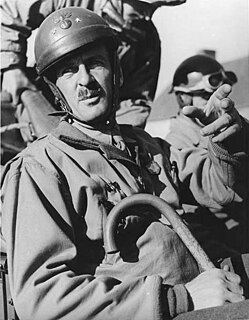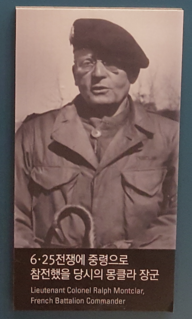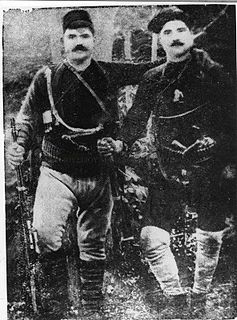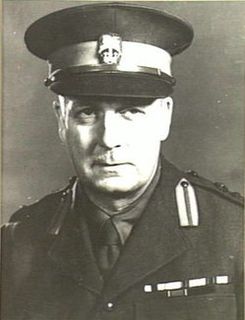 W
WMajor General Arthur Samuel "Tubby" Allen, was an Australian Army officer and accountant. During the Second World War he reached the rank of major general and commanded Allied forces in the Syria–Lebanon and New Guinea campaigns. Allen was frequently referred to during the Second World War by the nickname "Tubby"; an indication of his stocky build and the affection with which he was regarded by both soldiers and the Australian public.
 W
WAndranik Ozanian, commonly known as General Andranik or simply Andranik; 25 February 1865 – 31 August 1927), 1866 is also engraved on his grave in the Père Lachaise Cemetery. Some sources also erroneously indicate 1928 as his date of death, perhaps because Andranik's body was moved to France and reburied there in 1928.</ref> was an Armenian military commander and statesman, the best known fedayi and a key figure of the Armenian national liberation movement. From the late 19th century to the early 20th century, he was one of the main Armenian leaders of military efforts for the independence of Armenia.
 W
WField Marshal Sir Thomas Albert Blamey, was an Australian general of the First and Second World Wars, and the only Australian to attain the rank of field marshal.
 W
WLieutenant General Sir William Bridgeford, was a senior officer in the Australian Army. He began his military career in 1913 and fought on the Western Front during the First World War, before rising to command the 3rd Infantry Division during the Bougainville campaign in the Second World War. Later he served as the Commander in Chief of British Commonwealth Forces Korea during the Korean War. He retired from the military in 1953 and worked on the organising committee of the 1956 Melbourne Olympic Games, as well as being the director of several companies and treasurer of a returned services organisation.
 W
WLieutenant General Sir Charles James Briggs, was a British Army officer who held high command in World War I.
 W
WLieutenant Colonel Daniel Burges, VC, DSO was an English recipient of the Victoria Cross, the highest and most prestigious award for gallantry in the face of the enemy that can be awarded to British and Commonwealth forces.
 W
WAdmiral of the Fleet Sir John Henry Dacres Cunningham was a Royal Navy officer. A qualified senior navigator, he became Director of Plans at the Admiralty in 1930. He saw action as Commander-in-Chief of the Mediterranean Fleet during the Second World War with responsibility for the allied landings at Anzio and in the south of France. He served as First Sea Lord in the late 1940s: his focus was on implementing the Government's policy of scrapping many serviceable ships.
 W
WIoannis Demestichas was a Greek Navy officer. He is best known for his participation in the Macedonian Struggle under the nom de guerre of Kapetan Nikiforos. He held various senior commands in the Greek Navy, including thrice as Chief of the Hellenic Navy General Staff, and also served briefly in cabinet positions.
 W
WLieutenant General Bernard Cyril Freyberg, 1st Baron Freyberg, was a British-born New Zealand soldier and Victoria Cross recipient, who served as the 7th Governor-General of New Zealand from 1946 to 1952.
 W
WLieutenant General Sir Alexander Galloway, was a senior British Army officer. During the Second World War, he was particularly highly regarded as a staff officer and, as such, had an influential role in the outcome of Operation Crusader during the Western Desert Campaign in late 1941. He later commanded the 4th Indian Infantry Division at the Battle of Monte Cassino during the Italian Campaign in early 1944.
 W
WHaakon VII was the King of Norway from 1905 until his death in 1957.
 W
WAdmiral Sir Henry Harwood Harwood, KCB, OBE, was a British naval officer who won fame in the Battle of the River Plate.
 W
WMajor-General Sir Ivor Thomas Percival Hughes, was a senior British Army officer who fought in both the world wars. During the Second World War he commanded the 44th Division during the Battle of Alam el Halfa and the Second Battle of El Alamein in late 1942 and later became Serjeant-at-Arms of the House of Commons.
 W
WDimitrios Ioannou was a senior Greek Army officer who fought in the Macedonian front during World War I and in the opening stages of the Greco-Turkish War of 1919–1922.
 W
WGeorge Patrick John Rushworth Jellicoe, 2nd Earl Jellicoe, Baron Jellicoe of Southampton, was a British politician, diplomat and businessman.
 W
WPafsanias Katsotas was a Greek Army officer and politician.
 W
WAlexandros Kontoulis was a Greek Army officer who rose to the rank of Lieutenant General. He was among the driving minds behind the Macedonian Struggle and was involved in the Albanian national movement, with the nom de guerre of Kapetan Skourtis. Kontoulis fought with distinction in the Greco-Turkish War of 1897 and the First Balkan War, where he was heavily wounded. In the Greco-Turkish War of 1919–1922, he commanded the I Army Corps on the southern sector of the Greek front from February 1921 to June 1922. After his retirement, he served as ambassador to Albania.
 W
WAnders Frederik Emil Victor Schau Lassen, VC, MC & Two Bars was a highly decorated Danish soldier, who was the only non-Commonwealth recipient of the British Victoria Cross in the Second World War. He was posthumously awarded the United Kingdom's highest gallantry award for his actions during Operation Roast on 8 April 1945 at Lake Comacchio in Italy in the final weeks of the Italian campaign.
 W
WPhilippe François Marie Leclerc de Hauteclocque was a Free-French general during the Second World War. He became Marshal of France posthumously in 1952, and is known in France simply as le maréchal Leclerc or just Leclerc.
 W
WAir Chief Marshal Sir Arthur Murray Longmore, was an early naval aviator, before reaching high rank in the Royal Air Force. He was Commander-in-Chief of the RAF's Middle East Command from 1940 to 1941.
 W
WLieutenant General Sir Iven Giffard Mackay, was a senior Australian Army officer who served in both world wars.
 W
WRaoul Charles Magrin-Vernerey, also known as Ralph Monclar was a French officer and 2nd Inspector of the Foreign Legion who fought in World War I, World War II within the ranks of the Free French Forces and led the French Battalion in the Korean War. He was also one of the first senior officers to respond to the Appeal of 18 June.
 W
WField Marshal George Francis Milne, 1st Baron Milne, was a senior British Army officer who served as Chief of the Imperial General Staff (CIGS) from 1926 to 1933. He served in the Second Boer War and during the First World War he served briefly on the Western Front but spent most of the war commanding the British forces on the Macedonian front. As CIGS he generally promoted the mechanization of British land forces although limited practical progress was made during his term in office.
 W
WAristeidis Moraitinis DSO was a pioneer Greek military aviator of the early 20th century. During the Balkan Wars (1912–1913) he performed together with Michael Moutoussis the first naval air mission in history, while in the following World War I, he became Greece's only ace with nine aerial victories in total.
 W
WAdmiral of the Fleet Louis Francis Albert Victor Nicholas Mountbatten, 1st Earl Mountbatten of Burma, was a British Royal Navy officer and statesman, an uncle of Prince Philip, Duke of Edinburgh, and second cousin once removed of Queen Elizabeth II. During the Second World War, he was Supreme Allied Commander, South East Asia Command. He was the last Viceroy of India and the first governor-general of independent India.
 W
WBrigadier John Sebastian Nichols, was a British Army officer who fought during both the First World War and the Second World War. During the latter his most notable role was when he commanded the 50th (Northumbrian) Infantry Division during the Second Battle of El Alamein and in the Tunisian Campaign from 1942 to 1943.
 W
WDimitrios Oikonomou was a Hellenic Navy admiral. After fighting as a junior officer in the Balkan Wars, he was a convinced royalist and was dismissed from service in 1917–20. Reinstated, he held various ship and senior commands during the interwar period, including serving as Chief of the Hellenic Navy General Staff in 1935–36. In the latter post he was among the leaders of the military coup of 10 October 1935 that overthrew the Second Hellenic Republic and restored the Greek monarchy.
 W
WOlav V was King of Norway from 1957 until his death.
 W
WAdmiral Sir Henry Daniel Pridham-Wippell, was a Royal Navy officer who served in the First and Second World Wars.
 W
WAdmiral Sir Henry Bernard Hughes Rawlings, was a Royal Navy officer who served as Flag Officer, Eastern Mediterranean during the Second World War.
 W
WLieutenant General Sir Sydney Fairbairn Rowell, was an Australian soldier who served as Chief of the General Staff from 17 April 1950 to 15 December 1954. As Vice Chief of the General Staff from 8 January 1946 to 16 April 1950, he played a key role in the post-Second World War reorganisation of the Army, and in the 1949 Australian coal strike. However, he is best known as the commander who was dismissed in the Kokoda Track campaign.
 W
WAlexandros Pilatos Sakellariou was a Greek admiral and politician, who led the Royal Hellenic Navy in World War II.
 W
WLieutenant General Sir Stanley George Savige, was an Australian Army soldier and officer who served in the First World War and Second World War.
 W
WSeraphim born Vissarion Tikas was Archbishop of Athens and All Greece from 1974 to 1998.
 W
WMichael Sionidis was a Greek leader of makedonomachoi in the Macedonian Struggle.
 W
WMajor General Sir Clive Selwyn Steele, was an engineer and a senior officer of the Australian Army who served in both the First and Second World Wars. He was instrumental in the expansion of the Royal Australian Engineers (RAE) in preparation for the war against Japan.
 W
WMajor General George Alan Vasey, was an Australian Army officer. He rose to the rank of major general during the Second World War, before being killed in a plane crash near Cairns in 1945.
 W
WArchibald Percival Wavell, 1st Earl Wavell, was a senior officer of the British Army. He served in the Second Boer War, the Bazar Valley Campaign and World War I, during which he was wounded in the Second Battle of Ypres. He served in the Second World War, initially as Commander-in-Chief Middle East, in which role he led British forces to victory over the Italians in western Egypt and eastern Libya during Operation Compass in December 1940, only to be defeated by the German Army in the Western Desert in April 1941. He served as Commander-in-Chief, India, from July 1941 until June 1943 and then served as Viceroy of India until his retirement in February 1947.
 W
WField Marshal Henry Maitland Wilson, 1st Baron Wilson,, also known as Jumbo Wilson, was a senior British Army officer of the 20th century. He saw active service in the Second Boer War and then during the First World War on the Somme and at Passchendaele. During the Second World War he served as General Officer Commanding-in-Chief (GOC-in-C) British Troops in Egypt, in which role he launched Operation Compass, attacking Italian forces with considerable success, in December 1940. He went on to be Military Governor of Cyrenaica in February 1941, commanding a Commonwealth expeditionary force to Greece in April 1941 and General Officer Commanding (GOC) British Forces in Palestine and Trans-Jordan in May 1941.